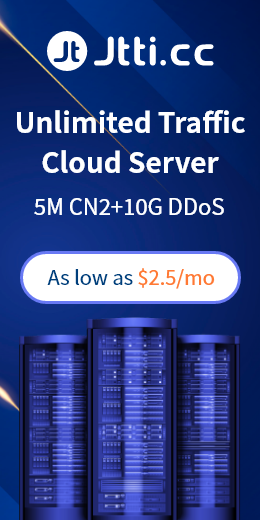Virtual private server is vps, and cloud server belongs to two types of managed services, there is a little difference. Whether using virtual private server or cloud server should take into account the actual needs of users. Here are the main differences between them:
Virtualization technology:
VPS
A VPS uses virtualization technologies, such as KVM, Xen, and VMware, to split a physical server into multiple virtual servers. Each VPS has its own independent operating system and resources.
Cloud server
Cloud servers are typically built on virtualized infrastructure, using cloud computing platforms that allow for more flexibility in dynamically allocating and adjusting resources.

Resource allocation and scalability:
VPS
VPS resources are usually allocated statically, with the user selecting certain CPU, memory, and storage configurations at the time of purchase, which are fixed during use.
Cloud server
The cloud server has greater elasticity, and users can increase or decrease resources such as CPU, memory, and storage at any time according to actual needs, achieving higher scalability.
Pricing model:
VPS
VPS typically use a fixed monthly or annual pricing model, with users paying a fixed fee regardless of actual resource usage.
Cloud server
Cloud servers typically use the on-demand billing model, where users pay based on the amount of resources they actually use, making them more flexible and suitable for volatile workloads.
Management and control:
VPS
VPS provides a more traditional management interface, usually based on virtualized panels (such as cPanel, Plesk, etc.).
Cloud server
The cloud server provides a more flexible management console, and users can control and monitor resources in real time through the Web interface or API.
Availability and redundancy:
VPS
VPS are typically deployed on a single physical server, and availability and redundancy depend on the reliability of the underlying physical server.
Cloud server
Cloud servers provide increased availability and redundancy through virtual instances distributed across multiple data centers and regions.
Network and Data center options:
VPS
VPS are typically provided by a single host, and the choice of network and data center is relatively limited.
Cloud server
Cloud servers allow users to choose between different data centers and regions to minimize latency and improve performance.
Application scenario:
VPS
It is suitable for small and medium-sized application scenarios such as small websites, application development, and test environments.
Cloud server
It is more suitable for large-scale, complex applications, as well as enterprise-class application scenarios that require strong elasticity and scalability.
It is necessary to choose whether to use VPS or cloud server according to specific requirements and application scenarios. For smaller-scale projects and forecast stable workloads, VPS can be an affordable option. For large enterprise applications that require a high degree of elasticity and scalability, cloud servers are more suitable.

 EN
EN
 CN
CN









